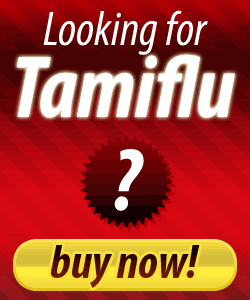Research shows H1N1 flu activity is down across the city and the country, but that is not stopping some people from stocking up on the most popular anti-viral treatment. NY1's Health reporter Kafi Drexel filed the following report.
For months, the children's version of Tamiflu, or the liquid form of the anti-viral drug, has been in limited supply across the country.
There's still plenty of supply in the city, but with the Swiss drugmaker Roche not expected to make more available in the United States before January, pharmacists like Charles Tabouchirani of Cherry Pharmacy in Manhattan's Upper East Side have been busy converting the adult capsule form to pediatric doses.
"We are seeing more prescriptions for Tamiflu and the initial reaction from a parent, because we are a pediatric pharmacy, is panic when they know the Tamiflu suspension is not available," says Tabouchirani. "But of course we can make it, we can compound it. It's as effective and actually tastes a little better than the manufactured Tamiflu."
While there hasn't been as much flu activity in New York City as there was this spring, health officials say pharmacists are reporting an increase in Tamiflu prescriptions particularly for young children ages zero to four. And they say that activity is out of proportion with the amount of illness currently circulating around the city.
"It is really about people nervous and stockpiling, which is a bad idea for a couple reasons," says Dr. Don Weiss of the city's Department of Health. "One, you put it in your cupboard, you forget about it. Then maybe you need it, it's already expired. Two, although we don't have a shortage of Tamiflu now, if people continue to stockpile, then maybe there will be a shortage and it won't be available to people who really need it."
Cases of a Tamiflu-resistant strain of the virus have been reported in Europe in patients with serious underlying medical conditions, and the Centers for Disease Control has already confirmed a resistant strain of H1N1 flu in a small cluster of patients in North Carolina.
While they continue to investigate, health officials say those small pockets of illness, compared to millions of other cases across the globe, do not mean a sudden shift towards a more dangerous strain of the virus. Another antiviral treatment, Relenza, has still worked in some of those patients.
There's no way of knowing if H1N1 flu activity in New York and across the country will continue to calm down or increase along with seasonal flu in the coming months. So in the meantime, most doctors still say the most important thing people can do is to get vaccinated when they can for both seasonal and H1N1 flu.
For months, the children's version of Tamiflu, or the liquid form of the anti-viral drug, has been in limited supply across the country.
There's still plenty of supply in the city, but with the Swiss drugmaker Roche not expected to make more available in the United States before January, pharmacists like Charles Tabouchirani of Cherry Pharmacy in Manhattan's Upper East Side have been busy converting the adult capsule form to pediatric doses.
"We are seeing more prescriptions for Tamiflu and the initial reaction from a parent, because we are a pediatric pharmacy, is panic when they know the Tamiflu suspension is not available," says Tabouchirani. "But of course we can make it, we can compound it. It's as effective and actually tastes a little better than the manufactured Tamiflu."
While there hasn't been as much flu activity in New York City as there was this spring, health officials say pharmacists are reporting an increase in Tamiflu prescriptions particularly for young children ages zero to four. And they say that activity is out of proportion with the amount of illness currently circulating around the city.
"It is really about people nervous and stockpiling, which is a bad idea for a couple reasons," says Dr. Don Weiss of the city's Department of Health. "One, you put it in your cupboard, you forget about it. Then maybe you need it, it's already expired. Two, although we don't have a shortage of Tamiflu now, if people continue to stockpile, then maybe there will be a shortage and it won't be available to people who really need it."
Cases of a Tamiflu-resistant strain of the virus have been reported in Europe in patients with serious underlying medical conditions, and the Centers for Disease Control has already confirmed a resistant strain of H1N1 flu in a small cluster of patients in North Carolina.
While they continue to investigate, health officials say those small pockets of illness, compared to millions of other cases across the globe, do not mean a sudden shift towards a more dangerous strain of the virus. Another antiviral treatment, Relenza, has still worked in some of those patients.
There's no way of knowing if H1N1 flu activity in New York and across the country will continue to calm down or increase along with seasonal flu in the coming months. So in the meantime, most doctors still say the most important thing people can do is to get vaccinated when they can for both seasonal and H1N1 flu.




No comments:
Post a Comment
Note: Only a member of this blog may post a comment.